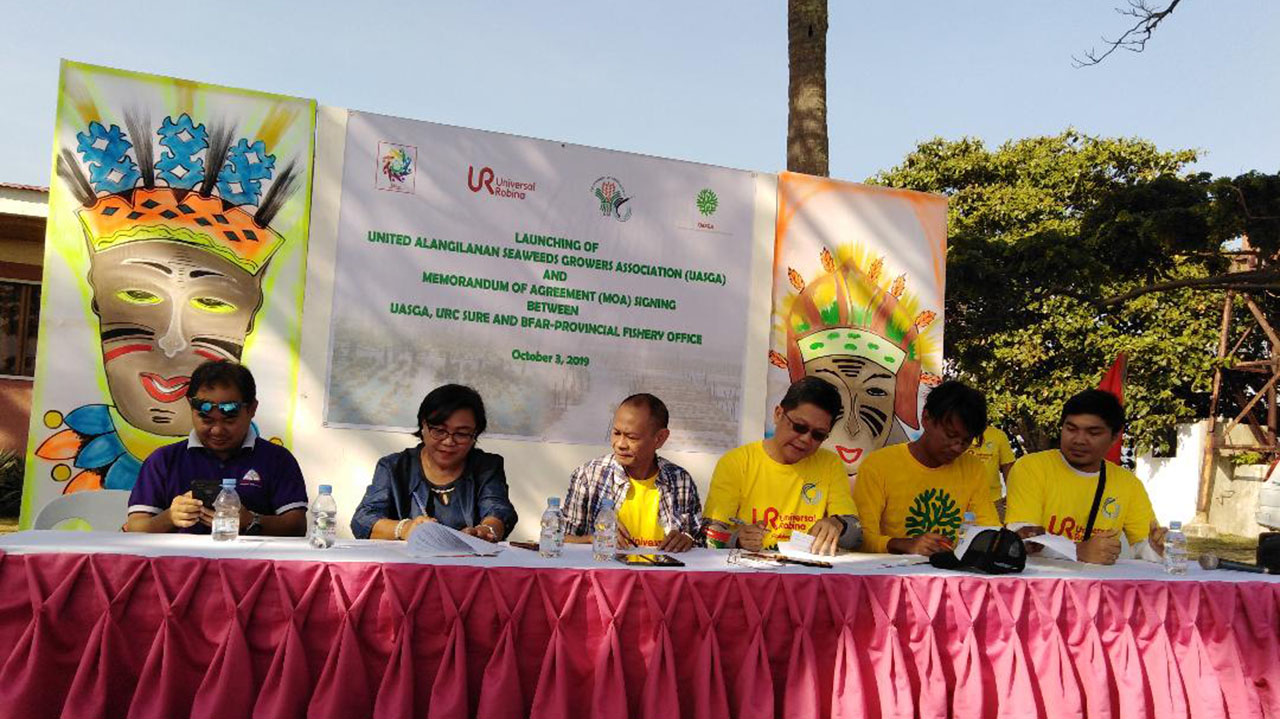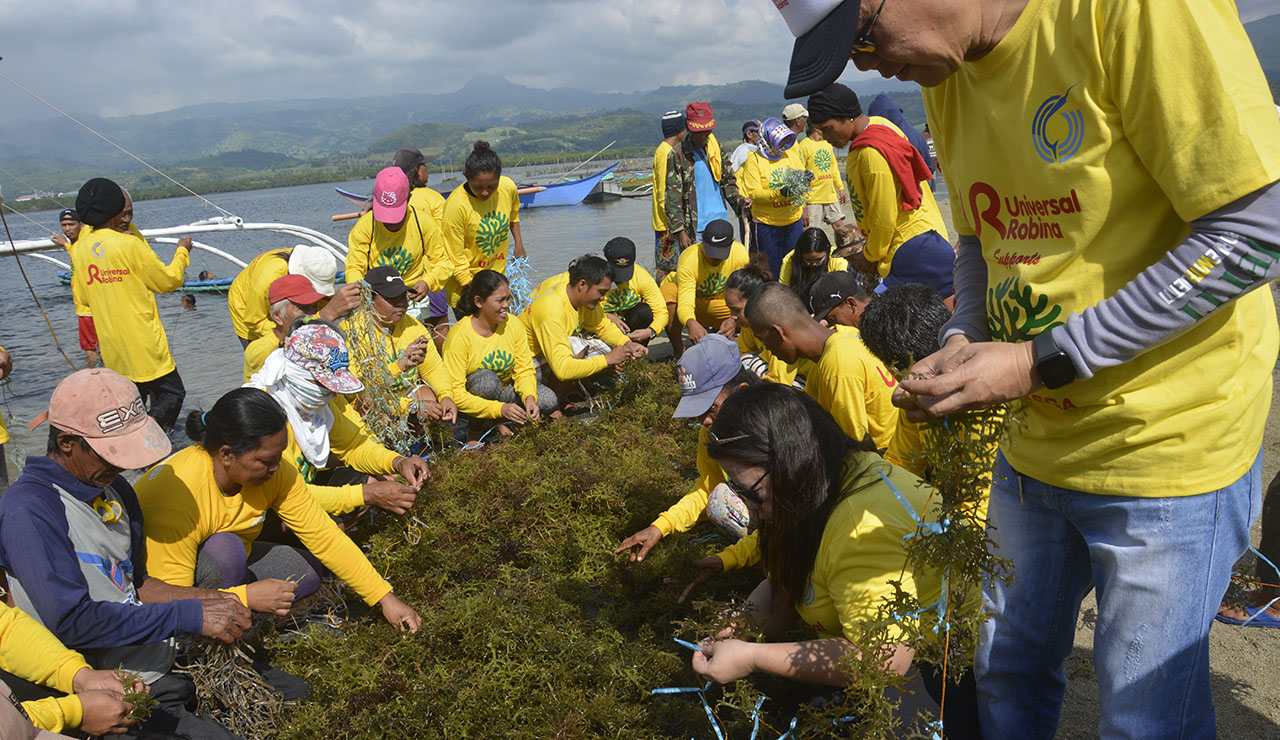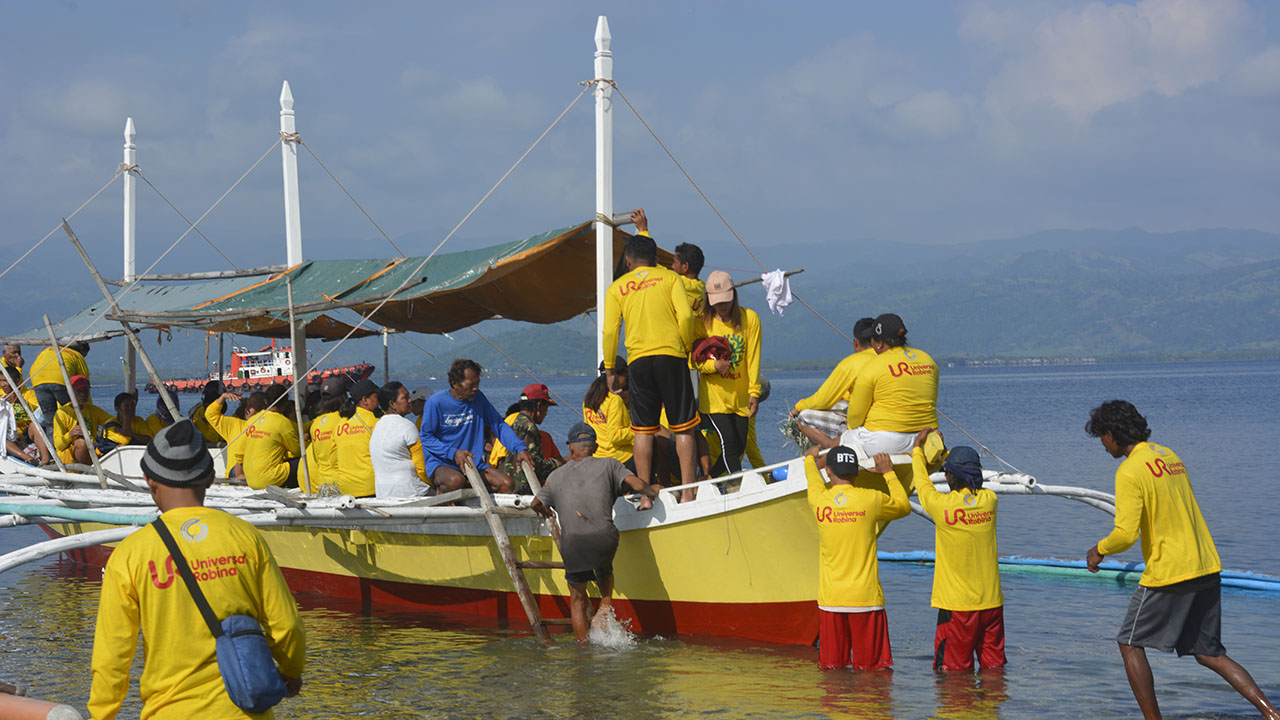Universal Robina Corporation Sugar and Renewables (URC SURE) has a long history of operations in Negros Oriental, going back more than 30 years, when it acquired one of the region’s biggest sugar mills, the United Planters Sugar Milling Company (UPSUMCO), in 1988. The plant now goes by a more familiar name, Universal Robina Sugar Milling Company, or URSUMCO for short.
In those three decades, URC SURE has also built a solid track record of working together with the local community of sugarcane farmers and workers. This year, however, the company has expanded its horizons to address the needs of another equally important livelihood in the barangay, which is seaweed farming.
On October 3, 2019, the company signed a memorandum of agreement with the United Alangilanan Seaweed Growers Association (UASGA) to develop the cultivation of seaweed farming and selling as a sustainable livelihood program among the residents of the area.

Department of Labor and Employment representative Diego Nochefranca, BFAR Provincial Fishery Officer Florencia Mepaña, URSUMCO Cane Supply Group Manager Mario Palma, URSUMCO & Distillery Operations Manager Arnel Amparo, UASGA President Vincent Candelario, and URSUMCO & Distillery EHS Manager Adrian Guylan.
In partnership with the Department of Agriculture’s local Bureau of Fisheries and Aquatic Resources (BFAR) office and the Department of Labor and Employment (DOLE), this new community livelihood initiative came into fruition under the leadership of Mario Palma, Cane Supply Group Manager at URC SURE, and Arnel Amparo, Operations Manager for URSUMCO and Distillery, who both saw the need to make the initiative more sustainable for the benefit of the community.
To get the project off the ground, URC provided a budget that was enough to propagate 2.5 tons of seaweed, which was matched by the BFAR.
URSUMCO & Distillery Environment, Health, and Safety Manager Adrian Guylan explains that there are three major components to making this program work. The first is by providing the farmers with “important technical knowledge on how to do seaweed farming and harvesting properly.” Tapping the BFAR to provide their expertise on this matter was crucial. “BFAR will provide the training, impart the best practices, teach them how to run the association. They will provide the resources when it comes to aquaculture and seaweed.” URC SURE will also contribute by lending its accounting team to help the association with its finances. Just to be clear, URC SURE will not be earning a single centavo from this endeavor—it is just helping UASGA manage and monitor their income and expenses.
The second part involves eliminating the middleman. “Even before the seaweed reaches the processing plant in Cebu, the farmers’ incomes have already been cut by middlemen,” explains URC SURE Human Resources Manager Michelle Angeli Dimaano. “It’s estimated that the farmers only earn 1/3 of what the seaweed is actually worth.” According to Dimaano, URC SURE has coordinated directly with several seaweed factories who have agreed to take care of transporting the seaweed from Negros Oriental to Cebu, provided that a certain seaweed production level is met. With no middleman and transportation costs to worry about, this will boost farmer incomes substantially.
The third element is to make seaweed farming a sustainable form of livelihood for more people. The farmers will not be the only ones benefitting, as the plan calls for the townspeople to be trained to make different snacks from seaweed. Here, DOLE will provide the knowhow. “We’ll be asking their help in making chips and noodles. We will have a program with DOLE, where the farmers can ask for financial assistance and machinery. That's the scope,” says Guylan.
Seaweed farmers set off to propagate seaweed in the shallow waters of North Bais Bay.
For the launch of the project in October, URC provided a budget that was enough to propagate 2.5 tons of seaweed, which was matched by the BFAR, hence the target harvest in February 2020 will be 5 tons. Depending on sea and weather conditions, an additional two to three harvests will be possible in 2020.
Seeing the hope and joy on the people’s faces during the launch was the icing on the cake for Guylan. “The excitement was different. Knowing that this is the first program of theirs that was backed by a major company, the farmers were very excited and hopeful. The officials told me, they will not waste this opportunity that has been given to them.”
For more information on URC and its portfolio of products, visit www2.urc.com.ph




